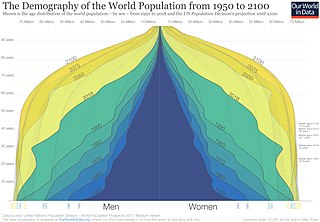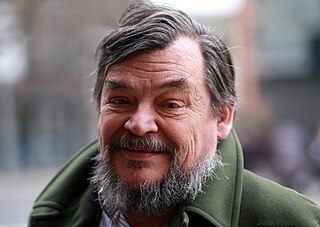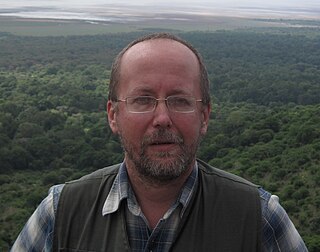
Media studies is a discipline and field of study that deals with the content, history, and effects of various media; in particular, the mass media. Media studies may draw on traditions from both the social sciences and the humanities, but it mostly draws from its core disciplines of mass communication, communication, communication sciences, and communication studies.

Demography is the statistical study of human populations: their size, composition, and how they change through the interplay of fertility (births), mortality (deaths), and migration.

An academic discipline or field of study is a branch of knowledge, taught and researched as part of higher education. A scholar's discipline is commonly defined by the university faculties and learned societies to which they belong and the academic journals in which they publish research.

Erik Steenfeldt Reinert is a Norwegian economist, with development economics, economic history and history of economic policy as his specialties.
A longitudinal study is a research design that involves repeated observations of the same variables over long periods of time. It is often a type of observational study, although it can also be structured as longitudinal randomized experiment.
Comparative research is a research methodology in the social sciences exemplified in cross-cultural or comparative studies that aims to make comparisons across different countries or cultures. A major problem in comparative research is that the data sets in different countries may define categories differently or may not use the same categories.

Articles in economics journals are usually classified according to JEL classification codes, which derive from the Journal of Economic Literature. The JEL is published quarterly by the American Economic Association (AEA) and contains survey articles and information on recently published books and dissertations. The AEA maintains EconLit, a searchable data base of citations for articles, books, reviews, dissertations, and working papers classified by JEL codes for the years from 1969. A recent addition to EconLit is indexing of economics journal articles from 1886 to 1968 parallel to the print series Index of Economic Articles.

African studies is the study of Africa, especially the continent's cultures and societies. The field includes the study of Africa's history, demography, culture, politics, economy, languages, and religion. A specialist in African studies is often referred to as an "Africanist".

Andrey Vitalievich Korotayev is a Russian anthropologist, economic historian, comparative political scientist, demographer and sociologist, with major contributions to world-systems theory, cross-cultural studies, Near Eastern history, Big History, and mathematical modelling of social and economic macrodynamics.

Water efficiency is the practice of reducing water consumption by measuring the amount of water required for a particular purpose and is proportionate to the amount of essential water used. Water efficiency differs from water conservation in that it focuses on reducing waste, not restricting use. Solutions for water efficiency not only focus on reducing the amount of potable water used but also on reducing the use of non-potable water where appropriate. It also emphasizes the influence consumers can have on water efficiency by making small behavioral changes to reduce water wastage, and by choosing more water-efficient products.

The Potsdam Institute for Climate Impact Research is a German government-funded research institute addressing crucial scientific questions in the fields of global change, climate impacts, and sustainable development. Ranked among the top environmental think tanks worldwide, it is one of the leading research institutions and part of a global network of scientific and academic institutions working on questions of global environmental change. It is a member of the Leibniz Association, whose institutions perform research on subjects of high relevance to society.
David Collier is an American political scientist specializing in comparative politics. He is Chancellor's Professor Emeritus at the University of California, Berkeley. He works in the fields of comparative politics, Latin American politics, and methodology. His father was the anthropologist Donald Collier.
Peter Flora is an Austrian citizen and taught until his retirement in spring 2009 as a professor of sociology at the University of Mannheim. Peter Flora is a son of the Austrian drawer, caricaturist, graphic artist and illustrator Paul Flora.

The Luxembourg Institute of Socio-Economic Research (LISER) is a research center located in Esch-sur-Alzette, Luxembourg.

The United Nations University Institute on Comparative Regional Integration Studies (UNU-CRIS) is a Research and Training Institute of the United Nations University (UNU). Based in Bruges, Belgium since 2001, UNU-CRIS fosters a better understanding of the processes of regional integration and cooperation and their implications in a changing world order. UNU-CRIS specialises in the comparative study of regional integration, monitoring and assessing regional integration worldwide and in the study of interactions between regional organisations and global institutions.
The Center for Global Communication Studies (CGCS) is a research center located within the Annenberg School for Communication at the University of Pennsylvania. CGCS serves as a research hub for students and scholars worldwide studying comparative communication studies, media law, and media policy. The center also provides consulting and advisory assistance to academic centers, non-governmental organizations, regulators, lawyers, and governments throughout the world.

Centre for Public Policy Research (CPPR) is an independent non-profit research organization located in Kochi, India. It was established in the year 2004. It conducts professional research, integrating developments in the areas of education, livelihood, governance, urban reforms and environment. The four focus study centers are: CPPR Centre for Urban Studies, CPPR Centre for Comparative Studies, CPPR Centre for Strategic Studies and CPPR Academy.

The Oeschger Centre for Climate and Climate Change Research (OCCR) is the interdisciplinary centre of excellence for climate research of the University of Bern.
Manitoba Centre for Health Policy (MCHP) is a public, not-for-profit research unit in the Department of Community Health Sciences within the Rady Faculty of Health Sciences at the University of Manitoba. MCHP provides and uses population-based administrative data to inform health policy, social policy and health and social service delivery provincially, nationally and internationally. MCHP also creates population-based research on health and the social determinants of health.












